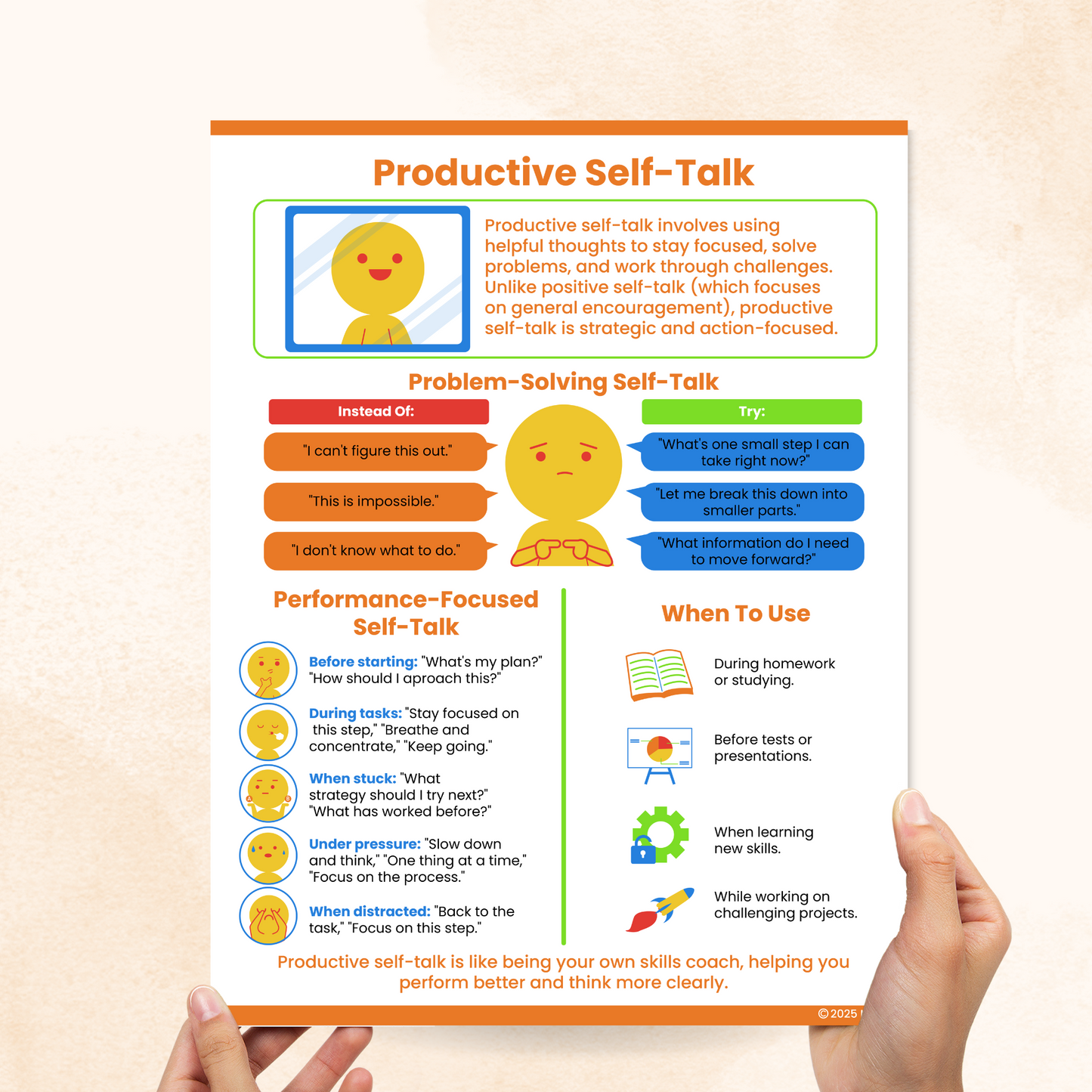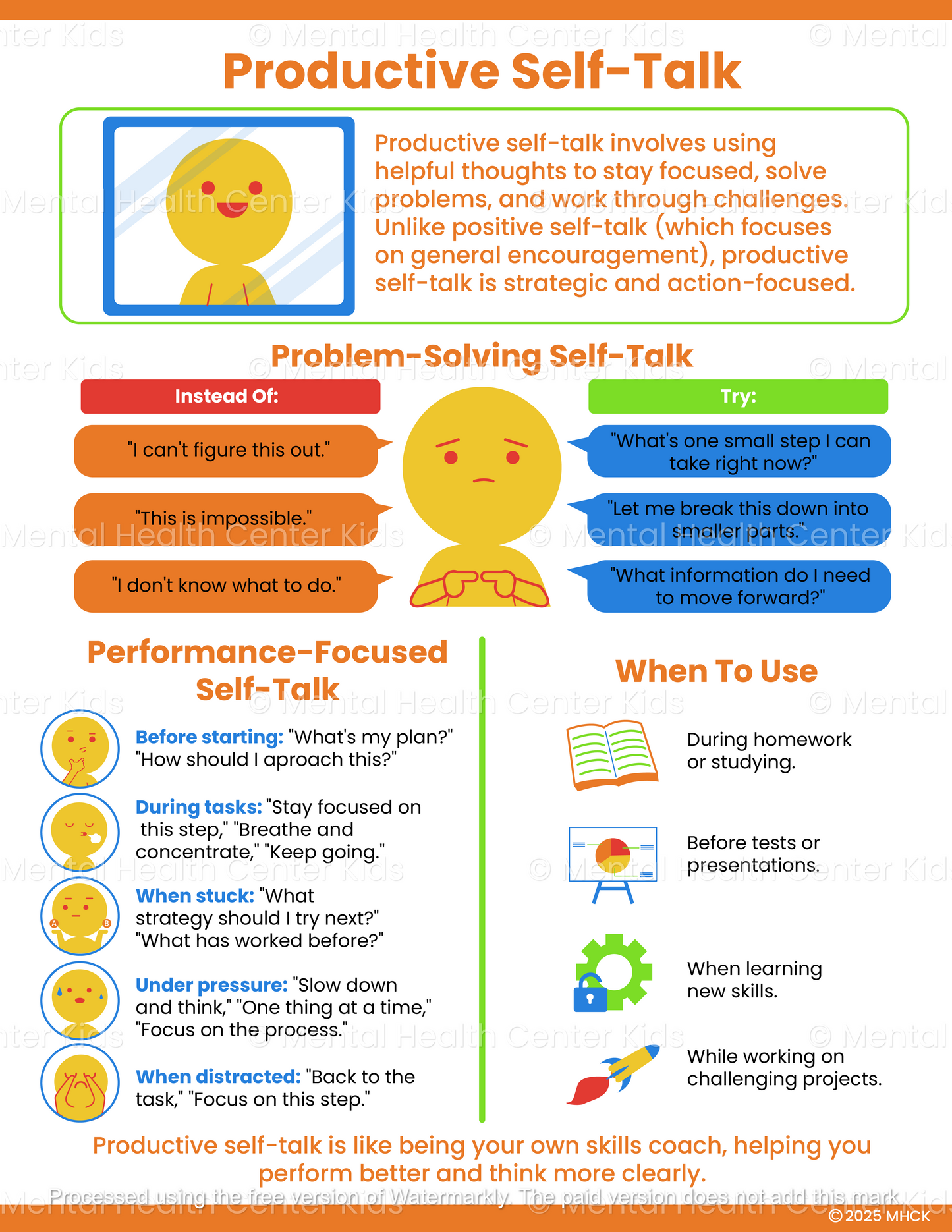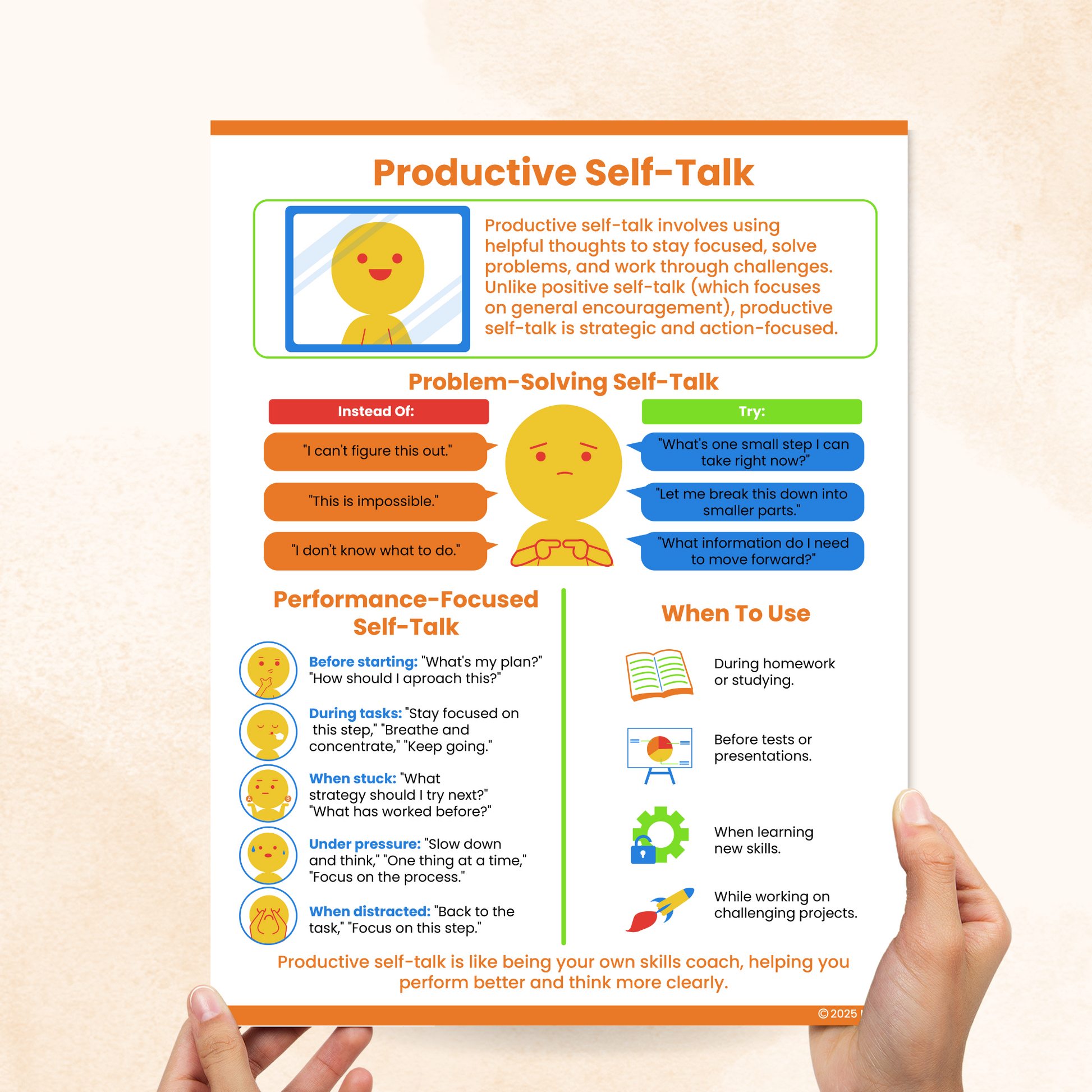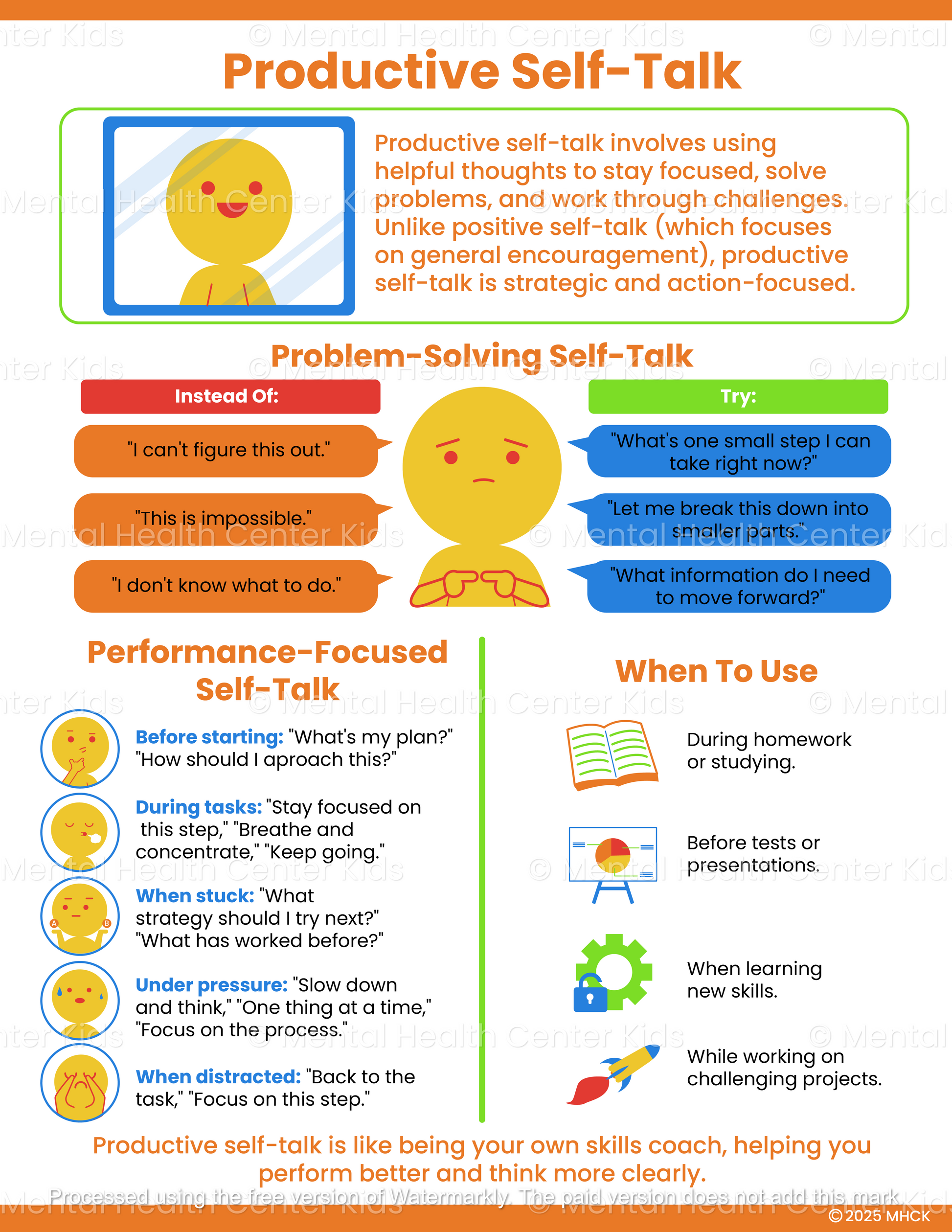Productive Self-Talk (PDF)



Productive self-talk focuses on what keeps people going, but that doesn’t mean it’s easy to master. Many think that staying productive just requires better habits or willpower, yet what often goes unnoticed is their inner dialogue. Studies in sports psychology and behavioral science have found that certain word patterns have a measurable impact on performance, which proves that productive self-talk is a strategy that works.
The Productive Self-talk handout gives clients examples of how to steer away from discouraging thoughts and turn them into action-based phrases. It features short and clear lines that they can use when starting, feeling stuck, distracted, or under pressure. They are also reminded to avoid common unproductive self-talk.
Reading this handout helps kids and teens to take notice of their thinking and shift it toward statements that support effort and persistence. Once done, they can begin by choosing a line to repeat whenever they find themselves delaying tasks, doubting their progress, or slipping into autopilot.
Caring adults can suggest creating cards with favorite self-talk lines.
*This item is an instant digital download. A link to download your files will be emailed to you once payment is confirmed.
Want more resources like this? Check out our full catalog of coping skills worksheets and handouts.
References:
- Blanchfield, A. W., Hardy, J., De Morree, H. M., Staiano, W., & Marcora, S. M. (2014). Talking yourself out of exhaustion: The effects of self-talk on endurance performance. Medicine & Science in Sports & Exercise, 46(5), 998–1007. https://doi.org/10.1249/MSS.0000000000000184
- Hatzigeorgiadis, A., Zourbanos, N., Galanis, E., & Theodorakis, Y. (2011). Self-talk and sports performance. Perspectives on Psychological Science, 6(4), 348-356. https://doi.org/10.1177/1745691611413136
- Kolovelonis, A., Goudas, M., & Dermitzaki, I. (2011). The effects of instructional and motivational self-talk on students’ motor task performance in physical education. Psychology of Sport and Exercise, 12(2), 153-158. https://doi.org/10.1016/j.psychsport.2010.09.002
- Sánchez, F., Carvajal, F., & Saggiomo, C. (2016). Self‑talk and academic performance in undergraduate students. Anales de Psicología / Annals of Psychology, 32(1), 139–147. https://doi.org/10.6018/analesps.32.1.188441
- St Clair Gibson, A., & Foster, C. (2007). The role of self-talk in the awareness of physiological state and physical performance. Sports Medicine, 37(12), 1029-1044. https://doi.org/10.2165/00007256-200737120-00003
- Instant digital download
- File: PDF
- Size: 8.5" x 11"




